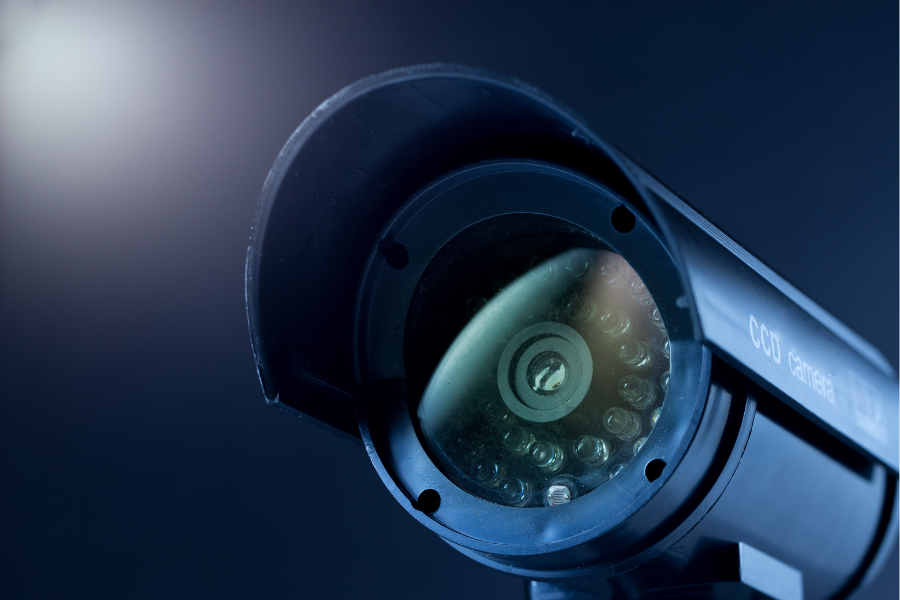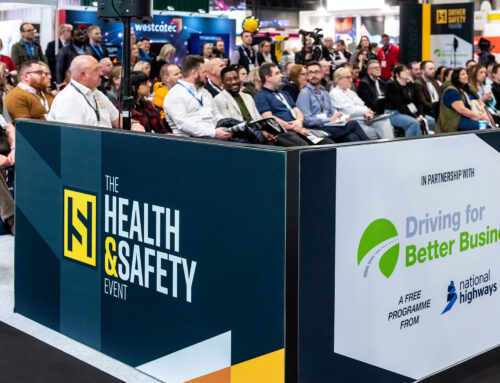LMS Security is a leading independent, privately owned and highly accredited security consultancy, offering electronic and physical security advice, design and management.
It works predominantly with government agencies and commercial organisations. LMS subject matter experts work remotely and use their own vehicles. Support Services Director, Helena Palmer, tells us why fleet safety is, nonetheless, at the top of their agenda.
“We found a number of policies and areas in which we could improve. Driving for Better Business is also a great resource for help and education – not least because we are not fleet professionals.”
Helena Palmer – Support Services Director, LMS Security

DfBB: You have a couple of company cars, which do low mileage and the rest of your security surveyors use their own vehicles? Why is fleet safety so important to you, Helena?
Helena: Our programmes are conducted by surveyors attending sites predominantly using grey fleet vehicles. They are all very risk-aware individuals – it’s in the job description, and we trust them. Nonetheless we spotted a potential risk in our not managing that fleet. We’re a very fast growth business. We’ve progressed from three employees to 20 plus over three years, and so the fleet piece has evolved as well. We need to deal with proper fleet governance now, rather than wait until we had a substantial fleet but no corresponding process.
DfBB: Where did you start?
Helena: I discovered Driving for Better Business and we worked through its gap analysis. We found a number of policies and areas in which we could improve. DfBB is also a great resource for help and education – not least because we are not fleet professionals. We need to have the right policies in place. We now have policies covering driving at work and mobile phone use – which is basically no calls or communications at all when driving. The vehicles we drive are full of electronic equipment which can function as a distraction.
DfBB: Most people would think you are already a very low risk business: a group of professional risk specialists using their own vehicles. Why did you need to do more?
Helena: We have four core values: respect, integrity, collaboration and excellence. Managing our work-related road risk dovetails into these values, particularly excellence.
Our drivers do a very limited mileage in their own vehicles, and they are all smart, trustworthy people who do the right thing. Even so, it’s incumbent on us to mitigate the risks they face on the road. Other people don’t always make the right decisions. We don’t want our people to be unsafe on the road. Given that we generally use grey fleet vehicles, we have to make sure that our people have the necessary understanding and resources to keep their vehicles roadworthy. We now have regular licence checks, copies of their insurance policies, tax and MOT certificates. We also check that they’re insured to drive for business use. So far the entire experience has been positive – we haven’t discovered any problems and we didn’t expect to. But our team understands exactly why we have to check.
DfBB: Given that it’s new to you, has establishing fleet governance been daunting?
Helena: We’re not large enough to have a fleet manager, and it is new to us, so we have learned as we’ve gone along. The DfBB gap analysis really helped us to understand what we’re doing, what we aren’t doing and what we might need to do in the future.
DfBB: So you’ve written your policies and checked everyone’s qualification for business driving. What else have you put in place?
Helena: We’re sending out all toolbox talks to drivers. We’ve instituted an incident reporting policy. We haven’t yet looked at driver training because our drivers do a relatively limited mileage but this is an option to look at in the future. Our drivers do walk round checks before use. They’ve been very proactive about doing it.
The employee buy-in has been very strong, which is important as we all work remotely across the UK. They need to understand and implement the policies – and they do. We’ve had a lot of positive employee feedback.






